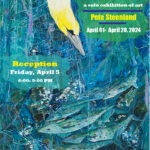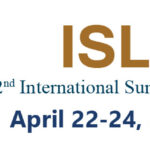The long list of awards and accolades that follow the accomplishments of Nicholas Olomu, 17, a recently-graduated Holy Trinity senior headed to Duke University in North Carolina in the Fall, pale in comparison to his humble nature and unwavering mission to combine biomedical engineering with technology to help people with organ disfunction.
From his college entry essay:
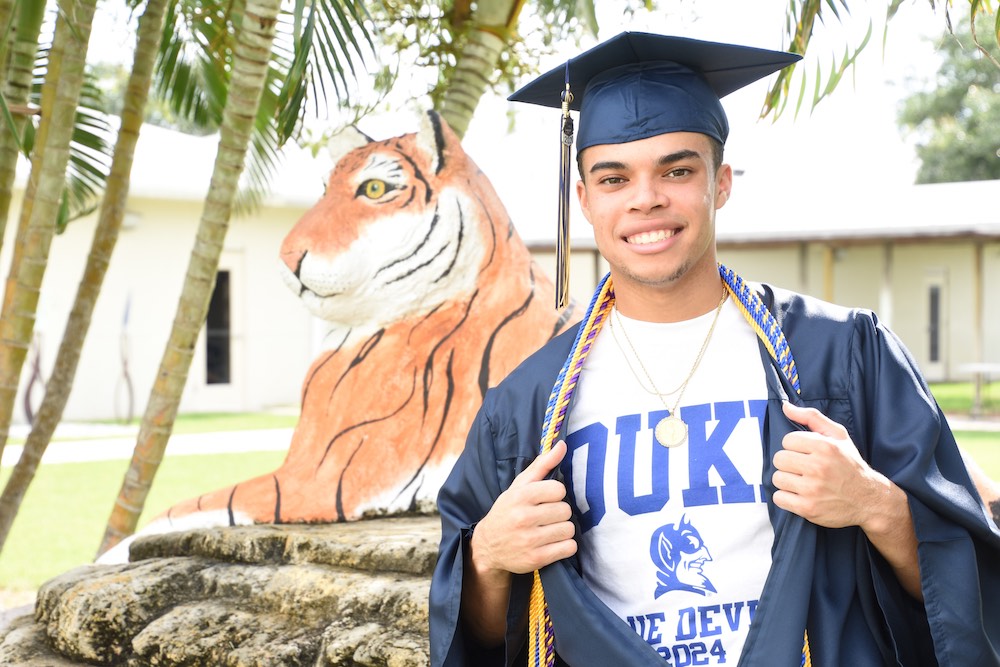
“My interest in engineering was discovered in a way unlike most other students. When I was around the age of five, my mom became sick with an autoimmune disease and her total kidney function was reduced to about 25%. Due to this, she had to be put on dialysis, and if you don’t know, dialysis can be extremely physically taxing on a person.
When people have any type of kidney problems their options are either to receive dialysis, or if it gets bad enough get a kidney transplant. In my Mom’s case she was lucky enough not to need a transplant but the question I always ask myself is what if she hadn’t gotten lucky?”
Hectic Schedule

Nicholas graduated with a weighted 4.5 GPA while juggling a rigorous 2.5 hour daily tennis training schedule at the University of Central Florida in Orlando, weekend travel to tennis matches around the country, volunteering at the Dorcas Outreach Center for Kids in Melbourne and a senior role at his school’s leadership program.
He was accepted to the National Honor Society, National English Honor Society, Mu Alpha Theta (mathematics honor society for high school and two-year college students), National Latin Honor Society and also served as a senior representative to Student Government.
“Time management was an important part of figuring out how to balance everything,” he said with a chuckle.
Nicholas has been playing tennis since he was five, competitively with the US Tennis Association since he was 11. He’s been ranked #51 in the nation for doubles, #120 nationally, and among the top 10 in Florida.
Despite the athletic schedule, Nicholas followed his passion for biomedical by keeping up with biomedical engineering and technological advancements through weekly check-ins with research sites to learn about new and exciting projects that he might one day contribute to.
From his college entry essay: “Biomedical engineering, in my opinion, is one of the most important emerging fields of study right now… Although there has been great progress in the mastery of artificial organs, science and medicine have not been able to make man-made organs as effective or [available] as they need to be. The creation of artificial organs will make the dreadful organ donor waitlists obsolete. The large majority of people who end up on these waitlists never receive a transplant, and of those people, many are too sick to wait and end up dying as a result of a lack of donors.”
Making the Right Choice
Nicholas chose Duke University after acceptance offers came from Case Western, Columbia, Cornell, UCLA, CalTech, Georgia Tech, and Northwestern University, among many others. At least four of those offers came with tennis scholarship offers of $25,000 to $40,000 per year, but Nicholas was determined to attend Duke—ranked #10 among colleges and universities by US News and World Report—because of the strength of its biomedical engineering research and curriculum, he said.
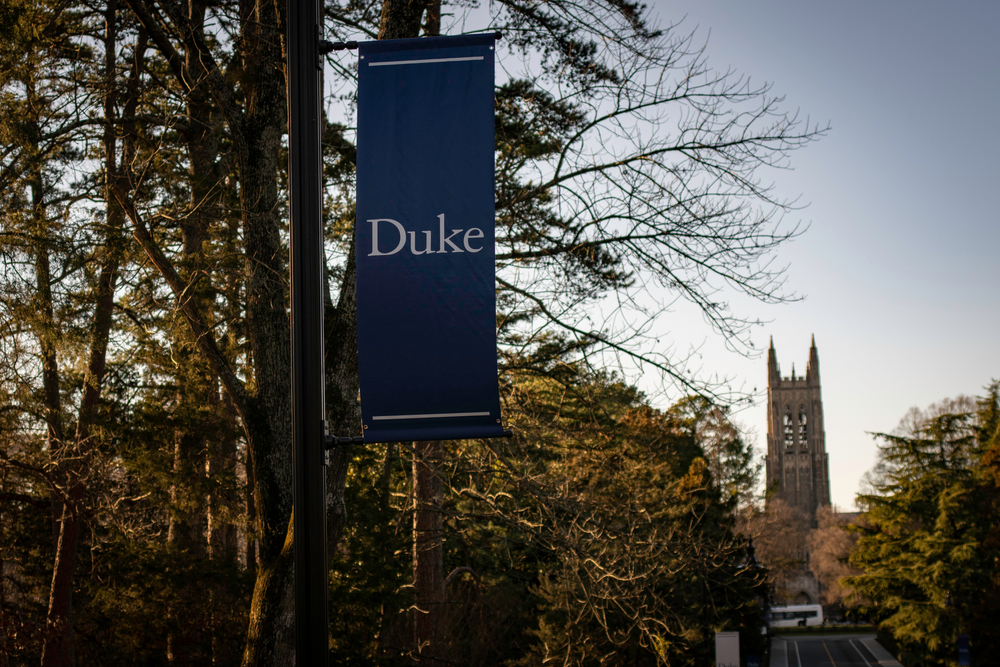
And, although clearly motivated and impacted by his mother’s autoimmune disfunction, Nicholas equally credits his father Francis Olomu with helping spark further motivation for his choices. “My dad came to America from Lagos, Nigeria, with the hope to make a better life. He worked hard, studied at UCLA to become a radiologist and was successful.” Now, Francis manages medical facilities in Suntree and Melbourne. Nicholas says watching his father negotiate business deals and interact with clients and tenants has been informative. “He’s very business-savvy and always makes the right decision, even when it’s the harder thing to do,” he said.
Nicholas has adopted his father’s work ethic and recites a life mantra his father repeats often: “Work hard and live today like there’s no tomorrow.”
From his college entry essay: I believe that at the time I will be attending college, and by the time I’m in the workforce, we will have the technology to make artificial organs, both more effectively and more efficiently. Although the technology will be there, we need many bright minds who can utilize that technology and make something the world has never seen before. Due to my circumstances, I am highly driven to pursue a career in biomedical engineering, specifically producing artificial organs.” •
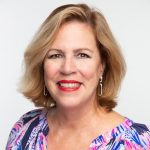
Shawna Lucas
Shawna Lucas (formerly Kelsch) has lived and worked in Brevard county for the past 20 years, serving in a variety of jobs and community service roles. She’s a former food and news reporter for Florida today, and was owner/operator of a marketing company that assisted clients and partners such as the Florida Healthcare Coalition, Blue Cross & Blue Shield Foundation for Florida, The Brevard Health Alliance, and Florida Tech to identify and solve pressing community health issues. She has she has dual bachelors degrees in Journalism and Sociology from the University of Miami, and was an inaugural fellow at the Freedom Forum Diversity Institute at Vanderbilt University in Nashville, TN.


